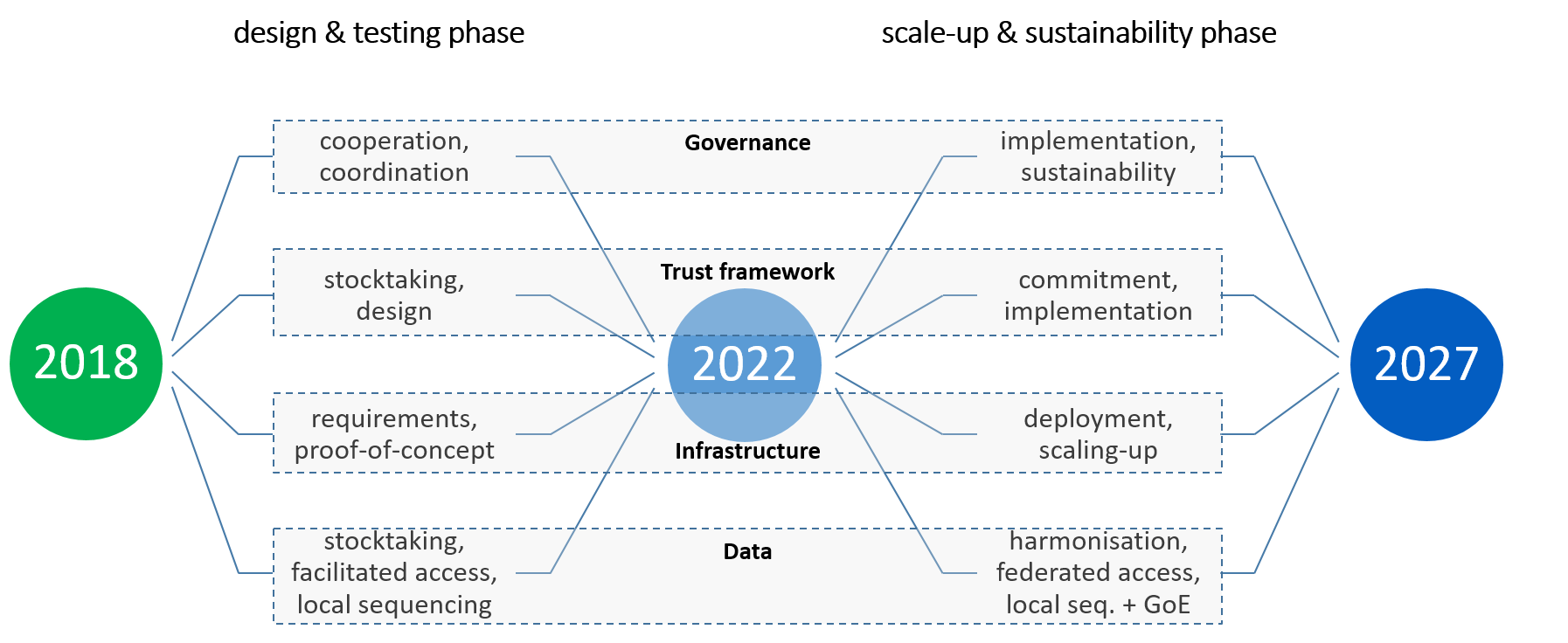Technology has come a long way, increasing the tasks that a machine can perform. A fact that postal services around the world benefit from and seek to make robots part of the crews working to sort and deliver parcels, This is to save time and effort and reduce the margin of error.
The idea of delivering the message and the postman profession inspired dozens, perhaps hundreds, of creators who imagined stories starting or ending in post offices. But they probably didn't imagine that technology would get to where the protagonists of these stories are robots.
Greece, Germany, the United States, Russia and Norway all live some of these stories. Its postal bodies suffer from many operational deficiencies, Especially since the sorting of parcels is done manually within a process that takes a lot of time and effort and is characterized by a large margin of error and delay in delivering them to customers and incurring large losses for service providers, This hinders the delivery of a vital service that is in increasing demand with the dedication of the online shopping trend that is now well established in the post-pandemic world.
To bring about radical change, Some post offices use devices known as "autonomous mobile robots." It uses sensors and navigation techniques to study the surrounding environment to move objects within an open space without human intervention.
In Greece, Supplement the Hellink post center in the capital Athens, His team of 55 small four-wheeled AI robots equipped with batteries that charge for 5 minutes to provide the robot with enough power to work 4 hours continuously.
To know where you're headed, The robots scan the zip code and determine the weight of the package to reach the appropriate category from several options spread over a large platform. According to this mechanism, The robots can handle 168,000 packages per day with weights of up to 15 kilograms.
This is not the first experience of its kind, of course, This technology seems to be present in post offices in different parts of the world. It sorts and delivers parcels in many developed countries around the world.
In Germany, The Postal Service in Hersfeld has launched a unique experiment where robots accompany delivery workers on their tours and help them carry heavy parcels. These robots are programmed to mimic the pace of the postman and can recognize his stopping or increasing speed to do the same. While carrying weights up to 150 kilograms, It is able to avoid obstacles, traverse bumps and work in various weather conditions.
In the United States of America, In 2018, the Postal Service launched a comprehensive pilot program to use robots to accomplish monotonous and urgent tasks during peak hours as part of a decade-long investment with a budget of more than $40 billion.
For example Florida hosted two trials in Orlando and Tampa. The robots work with workers who scan packages to enter their information into the computer. to guide the robots to the right boxes, and there, Other workers are waiting to deliver them to their destinations.
Similarly, Russia's State Postal Service has teamed up with a private company to begin integrating robots into its 38,000 hubs that handle more than 108 million parcels each year. The project will initially target 27 post offices in the capital, Moscow, 36 robots will deliver packages to nearby areas while leaving the choice in the hands of recipients and enabling them to follow the route of the parcel using a special verification code.
As for Norway, It has crossed another threshold, The Ministry of Transport and Communications funded the development of an autonomous robot to deliver parcels to their destinations outside of working hours. This program has gone through a series of tests that have shown that it will face many challenges, most notably the need for high-tech smart mentoring programs that enable robots to navigate between people in urban environments smoothly, safely and without a helper. And this is difficult, The behavior of all people cannot be predicted. Nor to exclude the subversive tendencies that may appear in some of them, Robots should also be programmed to identify all the elements they may encounter on a normal street, such as light poles, traffic lights and sidewalks. There must be means to enable them to operate in extreme weather conditions and make their way on ice or under snow.
In the face of all these challenges, These innovations are unlikely to operate in densely populated areas before they achieve the highest possible effectiveness in performing human functions. Until then, Some argue that it will need its own corridors to protect it from external factors, Especially in major city centers.
Opponents of the technology fear that robots will replace humans and affect jobs. But the developers maintain that their vision is to introduce a complement to human effort, not a substitute for it. Some versions of these robots can work in extreme weather conditions from high heat to extreme cold.
In Greece, Today, robots handle 80% of parcel sorting operations to make the process 3 times faster. This means ensuring that parcels are delivered the day after they are sent.
In the U.S. experiment, robots sort out up to 3,500 packages a day during peak times. It eases the burden on workers.
In Oslo, Norway, Authorities hope the robotics experiment will help them explore prospects for increased sustainability and efficiency in logistics supply chains.
Overall, These apps promise to open up new services and improved delivery services.
References:
https://www.reuters.com/article/us-deutsche-post-robot-idUSKBN1C9213
https://www.mynews13.com/fl/orlando/news/2021/12/23/usps-uses-robots-to-deliver-the-holidays#
https://www.computerweekly.com/news/252450906/Postal-delivery-robots-trialled-in-Norway






